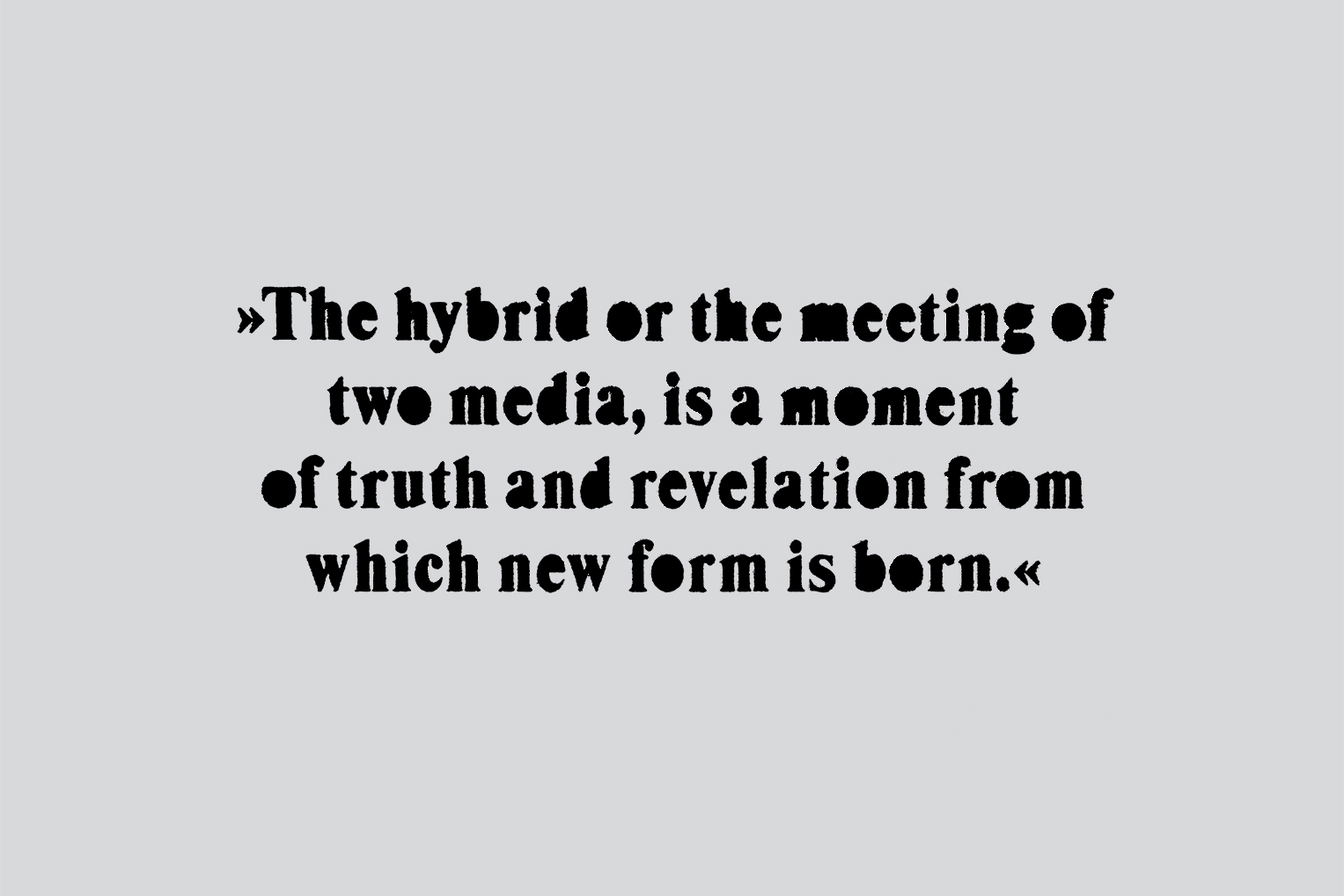
As part of the ongoing exhibition, Elias Wessel: It’s Complicated, Is Possibly Art, we hosted a discussion with Dr. Wendy Suzuki, Professor of Neural Science and Psychology in the Center for Neural Science at New York University; Sue Huang, a new media artist whose work addresses collective experience, and Elias Wessel, whose latest exhibition is currently on view at 1014. Moderated by the exhibition curator, Alina Girshovich.
What is the role of digital technologies in co-creating the reality we see, hear, and feel? How are AI and other digital tools being used in art? What does the future hold?
What is human is malleable and the tools we shape, shape us. Much research and scholarship has been taking place on the effects of digital technologies on the human brain, language and communication, and our perception of the world we inhabit. 1014 hosted a conversation with experts in art, tech, and neuroscience as they shared their thoughts on the current intersections between the digital and the physical, the use of digital technologies in art, and what they envision for the future.
Biographies

Dr. Wendy Suzuki is an award-winning Professor of Neural Science and Psychology in the Center for Neural Science at New York University and Incoming Dean of the College of Arts and Science. She is a celebrated international authority on neuroplasticity, was recently named one of the top ten women changing the way we see the world by Good Housekeeping and regularly serves as a sought-after expert for publications including The Wall Street Journal, Shape, and Health. Her TED talk has more than 55 million views and was the 2nd most viewed TED talk of 2018. She is the author of Good Anxiety and Healthy Brain, Happy Life.

Sue Huang is a new media artist whose work addresses collective experience. Her current projects explore ecological intimacies, human/nonhuman relations, and speculative futures. She is currently working on a series of works based on AI-generated texts (Erotic Ecologies and Desert Center, USA) and two collaborative projects (Honey Fungus, with Jonah King, and Post-Natural Pastorale, with Brian House). Huang has exhibited nationally and internationally, including at the Museum of Contemporary Art (MOCA), Los Angeles; the Contemporary Arts Center (CAC) in Cincinnati; VISUAL Carlow in Ireland; Philadelphia Contemporary; Rhizome at the New Museum; Ars Electronica in Linz, Austria; Kulturhuset in Stockholm, Sweden; the Beall Center for Art + Technology in Irvine, California; and Art Machines 2 in Hong Kong, among others. She is a previous artist-in-residence at the Studios at MASS MoCA. Huang has received grants and commissions from Rhizome, the Berkshire Taconic Community Foundation, the James Irvine Foundation (MOCA, Los Angeles), Creative Scotland (NEoN), and the SCHARP Development Award (UCHI), among others.

Elias Wessel is committed to developing new photographic concepts and procedures which culminate in abstract images that reflect contemporary discourses within society. The works function as both an important contribution to the issues of social and political development and the historical conversation between photography and painting. His current practice is focused on investigating the effects of digitization on society through the medium of photography, and the digital tools themselves. Thus, Wessel has deployed an artistic language that brings us closer to seeing what actually lies beneath the screen – whether the screen of our devices or that which keeps the world of deep tech hidden from view. As aesthetically accessible as the pictures appear, they invite the audience to examine what has been captured, and question what they know. His work uses the digital to return the viewer to the physical and face what’s plaguing our world.

Alina Girshovich is an independent curator and cultural strategist originally from Latvia, now based in New York. She works with artists, institutions, and spaces across cultures and disciplines -- from Columbia University and the arts in New York to Myanmar and Cuba. Alina is a co-founder of the art collective, Assembly Required, and holds a degree in art history and international relations from Columbia University.
As part of the ongoing exhibition, Elias Wessel: It’s Complicated, Is Possibly Art, we hosted a discussion with Dr. Wendy Suzuki, Professor of Neural Science and Psychology in the Center for Neural Science at New York University; Sue Huang, a new media artist whose work addresses collective experience, and Elias Wessel, whose latest exhibition is currently on view at 1014. Moderated by the exhibition curator, Alina Girshovich.
What is the role of digital technologies in co-creating the reality we see, hear, and feel? How are AI and other digital tools being used in art? What does the future hold?
What is human is malleable and the tools we shape, shape us. Much research and scholarship has been taking place on the effects of digital technologies on the human brain, language and communication, and our perception of the world we inhabit. 1014 hosted a conversation with experts in art, tech, and neuroscience as they shared their thoughts on the current intersections between the digital and the physical, the use of digital technologies in art, and what they envision for the future.
Biographies

Dr. Wendy Suzuki is an award-winning Professor of Neural Science and Psychology in the Center for Neural Science at New York University and Incoming Dean of the College of Arts and Science. She is a celebrated international authority on neuroplasticity, was recently named one of the top ten women changing the way we see the world by Good Housekeeping and regularly serves as a sought-after expert for publications including The Wall Street Journal, Shape, and Health. Her TED talk has more than 55 million views and was the 2nd most viewed TED talk of 2018. She is the author of Good Anxiety and Healthy Brain, Happy Life.

Sue Huang is a new media artist whose work addresses collective experience. Her current projects explore ecological intimacies, human/nonhuman relations, and speculative futures. She is currently working on a series of works based on AI-generated texts (Erotic Ecologies and Desert Center, USA) and two collaborative projects (Honey Fungus, with Jonah King, and Post-Natural Pastorale, with Brian House). Huang has exhibited nationally and internationally, including at the Museum of Contemporary Art (MOCA), Los Angeles; the Contemporary Arts Center (CAC) in Cincinnati; VISUAL Carlow in Ireland; Philadelphia Contemporary; Rhizome at the New Museum; Ars Electronica in Linz, Austria; Kulturhuset in Stockholm, Sweden; the Beall Center for Art + Technology in Irvine, California; and Art Machines 2 in Hong Kong, among others. She is a previous artist-in-residence at the Studios at MASS MoCA. Huang has received grants and commissions from Rhizome, the Berkshire Taconic Community Foundation, the James Irvine Foundation (MOCA, Los Angeles), Creative Scotland (NEoN), and the SCHARP Development Award (UCHI), among others.

Elias Wessel is committed to developing new photographic concepts and procedures which culminate in abstract images that reflect contemporary discourses within society. The works function as both an important contribution to the issues of social and political development and the historical conversation between photography and painting. His current practice is focused on investigating the effects of digitization on society through the medium of photography, and the digital tools themselves. Thus, Wessel has deployed an artistic language that brings us closer to seeing what actually lies beneath the screen – whether the screen of our devices or that which keeps the world of deep tech hidden from view. As aesthetically accessible as the pictures appear, they invite the audience to examine what has been captured, and question what they know. His work uses the digital to return the viewer to the physical and face what’s plaguing our world.

Alina Girshovich is an independent curator and cultural strategist originally from Latvia, now based in New York. She works with artists, institutions, and spaces across cultures and disciplines -- from Columbia University and the arts in New York to Myanmar and Cuba. Alina is a co-founder of the art collective, Assembly Required, and holds a degree in art history and international relations from Columbia University.

As part of the ongoing exhibition, Elias Wessel: It’s Complicated, Is Possibly Art, we hosted a discussion with Dr. Wendy Suzuki, Professor of Neural Science and Psychology in the Center for Neural Science at New York University; Sue Huang, a new media artist whose work addresses collective experience, and Elias Wessel, whose latest exhibition is currently on view at 1014. Moderated by the exhibition curator, Alina Girshovich.
What is the role of digital technologies in co-creating the reality we see, hear, and feel? How are AI and other digital tools being used in art? What does the future hold?
What is human is malleable and the tools we shape, shape us. Much research and scholarship has been taking place on the effects of digital technologies on the human brain, language and communication, and our perception of the world we inhabit. 1014 hosted a conversation with experts in art, tech, and neuroscience as they shared their thoughts on the current intersections between the digital and the physical, the use of digital technologies in art, and what they envision for the future.
Biographies

Dr. Wendy Suzuki is an award-winning Professor of Neural Science and Psychology in the Center for Neural Science at New York University and Incoming Dean of the College of Arts and Science. She is a celebrated international authority on neuroplasticity, was recently named one of the top ten women changing the way we see the world by Good Housekeeping and regularly serves as a sought-after expert for publications including The Wall Street Journal, Shape, and Health. Her TED talk has more than 55 million views and was the 2nd most viewed TED talk of 2018. She is the author of Good Anxiety and Healthy Brain, Happy Life.

Sue Huang is a new media artist whose work addresses collective experience. Her current projects explore ecological intimacies, human/nonhuman relations, and speculative futures. She is currently working on a series of works based on AI-generated texts (Erotic Ecologies and Desert Center, USA) and two collaborative projects (Honey Fungus, with Jonah King, and Post-Natural Pastorale, with Brian House). Huang has exhibited nationally and internationally, including at the Museum of Contemporary Art (MOCA), Los Angeles; the Contemporary Arts Center (CAC) in Cincinnati; VISUAL Carlow in Ireland; Philadelphia Contemporary; Rhizome at the New Museum; Ars Electronica in Linz, Austria; Kulturhuset in Stockholm, Sweden; the Beall Center for Art + Technology in Irvine, California; and Art Machines 2 in Hong Kong, among others. She is a previous artist-in-residence at the Studios at MASS MoCA. Huang has received grants and commissions from Rhizome, the Berkshire Taconic Community Foundation, the James Irvine Foundation (MOCA, Los Angeles), Creative Scotland (NEoN), and the SCHARP Development Award (UCHI), among others.

Elias Wessel is committed to developing new photographic concepts and procedures which culminate in abstract images that reflect contemporary discourses within society. The works function as both an important contribution to the issues of social and political development and the historical conversation between photography and painting. His current practice is focused on investigating the effects of digitization on society through the medium of photography, and the digital tools themselves. Thus, Wessel has deployed an artistic language that brings us closer to seeing what actually lies beneath the screen – whether the screen of our devices or that which keeps the world of deep tech hidden from view. As aesthetically accessible as the pictures appear, they invite the audience to examine what has been captured, and question what they know. His work uses the digital to return the viewer to the physical and face what’s plaguing our world.

Alina Girshovich is an independent curator and cultural strategist originally from Latvia, now based in New York. She works with artists, institutions, and spaces across cultures and disciplines -- from Columbia University and the arts in New York to Myanmar and Cuba. Alina is a co-founder of the art collective, Assembly Required, and holds a degree in art history and international relations from Columbia University.
.png)

.jpg)
